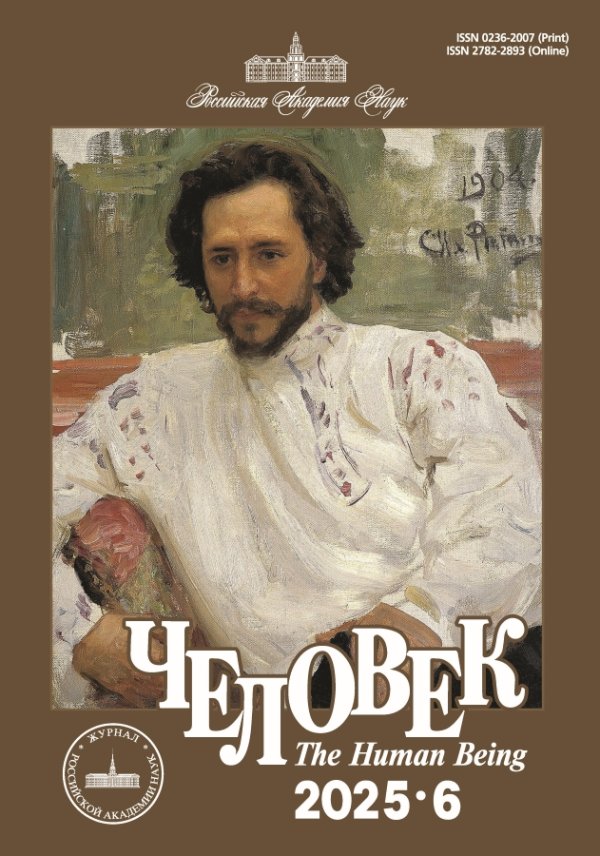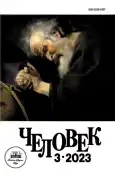J. Savulescu's "The God Machine" as a Moral Agent and the Problem of Responsibility
- Authors: Larionov I.Y.1, Perova N.V.1
-
Affiliations:
- Saint-Petersburg State University
- Issue: Vol 34, No 3 (2023)
- Pages: 24-40
- Section: The philosophy of the himan being
- URL: https://journals.rcsi.science/0236-2007/article/view/141390
- DOI: https://doi.org/10.31857/S023620070026101-8
- ID: 141390
Full Text
Abstract
This article is devoted to the issue of moral responsibility in connection with artificial intelligence technologies. In recent years, artificial intelligence has been actively developing towards greater autonomy, which makes the philosophical analysis of artificial moral agency extremely relevant. The relevance of the work is also determined by the increasing spread of artificial intelligence in professional areas, including those related to the adoption of responsible managerial, financial, etc. solutions. The main object of research in the article is a thought experiment — the project of the so-called “The God Machine” by the Western philosopher J. Savulescu, which allows us to turn to such an important aspect as the possibility of the influence of artificial intelligence on the development of human moral consciousness, since modern technologies, along with projects of biological moral human enhancement, claim the ability to create artificial moral agents. The authors give a comprehensive analysis of this project, correlating it with other concepts of modern analytical philosophy of consciousness, incl. Н. Frankfurt. The theoretical focus of the study is directed to the concepts of responsibility and freedom as key in formulating the criteria of moral agency. At the same time, the article considers the features of the implementation of the criteria of moral agency in relation to artificial intelligence. The article assesses the viability of J. Savulescu's project, in particular: to what extent artificial intelligence like the The God Machine can be considered as a moral agent, whether a person can acquire the characteristics of a moral, responsible and free person with the help of such an artificial mediator, and to what extent such projects contribute to the moral enhancement of mankind. It also points to the risks of paternalistic interference in the development of morality. Separately, the phenomenon of moral dilemmas is considered in connection with the problems of embedding artificial intelligence in the life of modern society, as well as the logical aspects of decision-making in the context of moral conflicts. The conclusion is formulated about the key importance of the category of responsibility for modeling the relationship between man and artificial intelligence in machine ethics.
About the authors
I. Y. Larionov
Saint-Petersburg State University7-9 Universitetskaya nab., Saint-Petersburg 199034, Russian Federation
Nina Vadimovna Perova
Saint-Petersburg State University7-9 Universitetskaya nab., Saint-Petersburg 199034, Russian Federation
References
- Альчуррон К.Э., Герденфорс П., Макинсон Д. Логика теории изменения: функции ревизии и сокращения через частичное пересечение // «Нормативные системы» и другие работы по философии права и логике норм. СПб.: Издательский Дом СПбГУ, 2013. С. 318–343.
- Гарвардт М.А., Перова Н.В. Универсализм и релятивизм морального агента биологического нравственного улучшения (на примере политической деятельности) // Дискурсы этики. 2022, № 1(13). С.69–84.
- Ларионов И.Ю. Кто несет ответственность за применение оружия с искусственным интеллектом? // Интернет и современное общество: сборник тезисов докладов [Электронный ресурс]. Труды XXV Международной объединенной научной конференции «Интернет и современное общество» (IMS-2022), Санкт-Петербург, 23–24 июня 2022 г. СПб: Университет ИТМО, 2022. http://ojs.itmo.ru/index.php/IMS/issue/view/78,свободный.
- Ларионов И.Ю., Марков Б.В. Морально-антропологические риски технологий биологического совершенствования человека // Дискурсы этики. 2022. № 4(16). C. 25–46.
- Милль Дж. О свободе // Наука и жизнь. 1993. № 11. С.10–11.
- Разин А.В. Этика искусственного интеллекта // Философия и общество. 2019. № 1. С. 57–73.
- Сёрл Дж. Сознание, мозг и программы // Аналитическая философия: становление и развитие. М.: Дом интеллектуальной книги, Прогресс-Традиция, 1998.
- Философия ответственности / под ред. Е.Н. Лисанюк, В.Ю. Перова. СПб.: Наука, 2014.
- Франкфурт Г. Альтернативные возможности и моральная ответственность // Философия. Журнал Высшей школы экономики. 2017. Т. I, № 4. С.129–140.
- Allen C., Varner G., Zinser J. Prolegomena to any future artificial moral agent. Journal of Experimental & Theoretical Artificial Intelligence. 2000. Vol.12, N 3. P. 251–261.
- Anderson M., Anderson S.L. Machine Ethics: Creating an Ethical Intelligent Agent. AI Magazine. 2007. N 4(28). P.15–26.
- Awad E., Dsouza S., Kim R. et al. The Moral Machine Experiment. 2018. Nature. Vol. 563. P. 59–64.
- Dennett D. When HAL Kills, Who’s to Blame? Computer Ethics // Stork, David, HAL’s Legacy: 2001's Computer as Dream and Reality. MIT Press, 1998.
- Floridi L., Sanders J. Artificial Evil and the Foundation of Computer Ethics. Ethics and Information Technology. 2001. N 3(1). P. 56–66.
- Frankfurt H. Freedom of the Will and the Concept of a Person. The Journal of Philosophy. 1971. Vol. 68, N 1. P. 5–20.
- Harris J. Moral Enhancement and Freedom. Bioethics. 2011. Vol. 25. P.102–111.
- Himma K.E. Artificial Agency, Consciousness, and the Criteria for Moral Agency: What Properties must an Artificial Agent have to be a Moral Agent? Ethics and Information Technology. 2009. N. 11. P. 19–29.
- Lara F. Why a Virtual Assistant for Moral Enhancement When We Could have a Socrates? Science and Engineering Ethics. 2021, N 42. P. 27.
- Moral Dilemmas and Moral Theory / ed. Mason H.E. N.Y.: Oxford University Press, 1996.
- Nadeau J.E. Only Androids Can Be Ethical // Thinking about Android Epistemology / eds. Ford K. and Glymour C. MIT Press, 2006. P. 241–248.
- Savulescu J., Persson I. Moral Enhancement, Freedom and the God Machine. The Monist. 2012. N 95(3). P. 399–421.
- Sullins J.P. When Is a Robot a Moral Agent. International Review of Information Ethics. 2006. Vol.6 (12). P. 23–30.
- Thomson J.J. The Trolley Problem. The Yale Law Journal. 1985. Vol. 94, N 6. P.1395–1415.
- Turing A. Computing Machinery and Intelligence // Mind. 1950, LIX (236). P. 433–460.










